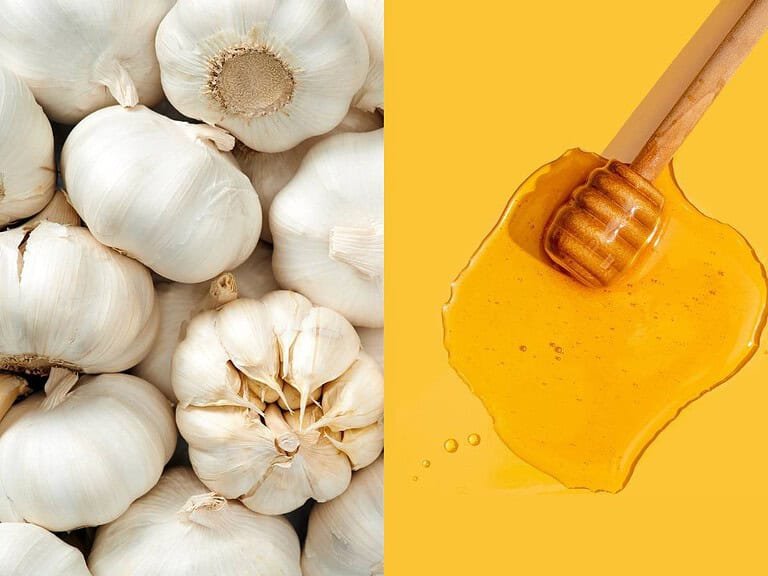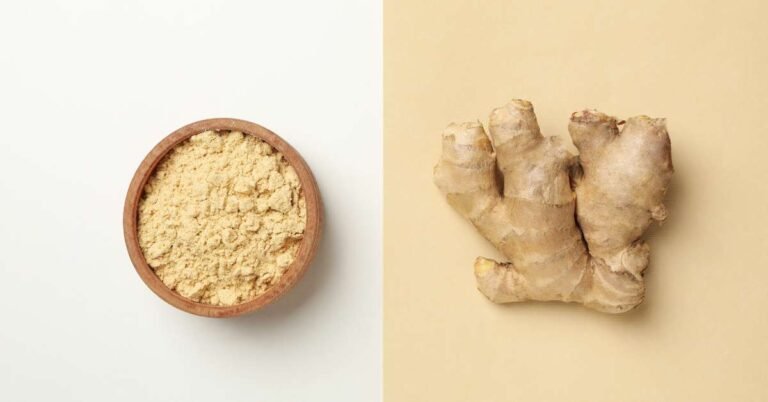Book Appointment Now


Carnivore Diet Food List: The No.1 Ultimate Guide
Are you thinking about trying a carnivore diet? It’s getting popular for its benefits and simple approach.
But if you’re new, your shopping list and meal plan will change.
You might wonder if an all-meat diet is right for you. What do you need to stay healthy?
Wonder no more. This post is for you. We’ll provide a complete Carnivore Diet Food List with everything you need to make this diet work.
Ready? Let’s get started.
Table of Contents
What is the Carnivore Diet?
At its core, the Carnivore Diet is a restrictive diet that removes all plant-based foods from your daily meals. This includes fruits, vegetables, grains, legumes, seeds, and even most dairy products. Instead, the main ingredients of the Carnivore Diet Food List consists of:
- Meat (beef, pork, lamb, etc.)
- Poultry (chicken, turkey, etc.)
- Fish and seafood
- Eggs
- Certain dairy products (butter, heavy cream, etc.)
By focusing on these nutrient-dense animal foods, you’ll be consuming a diet that is high in protein, moderate in fat, and extremely low in carbohydrates. This macronutrient ratio puts your body into a state of ketosis, where it begins to burn fat for fuel instead of relying on glucose from carbohydrates.
The Carnivore Diet originated from the controversial theory that human ancestors consumed mostly fish and meat without the need for carb intake. It suggests that high-carb diets are among the causes of today’s high levels of chronic disease.
The carnivore diet is attracting popularity and attention due to its claiming of potential benefits. Many people want to try this diet as it was adapted by our ancestors, knowingly for their incredible vitality and health to survive through harsh living conditions.
However, there is no controlled studies have confirmed the effects of the carnivore diet.

The Benefits of the Carnivore Diet
One of the most exciting aspects of the Carnivore Diet is the potential benefits it offers. Many people who have adopted this way of eating have reported:
- Improved digestion and reduced gut issues
- Increased energy levels and mental clarity
- Reduced inflammation throughout the body
- Easier weight management and fat loss
- Improved skin health and reduced acne
- Better sleep quality and reduced stress levels
These benefits can be attributed to the nutrient density of the foods on the Carnivore Diet, as well as the elimination of potential inflammatory and gut-irritating plant compounds, high-carb and high-sugar foods.
A survey of over 2,000 people following a Carnivore Diet indicated reductions in body mass index (BMI) and improvements in overall health markers like triglycerides and cholesterol levels.
However, the complete restriction of carbs on the carnivore diet is not recommended for all people. It is best to consult your doctor or nutritionist before trying this diet.


The Downsides of the Carnivore Diet
While the Carnivore Diet has shown promise in improving various aspects of health, it’s important to note that there are also potential risks and considerations to keep in mind.
Nutritional Deficiencies on the Carnivore Diet
One of the most significant downsides of the Carnivore Diet is the risk of nutritional deficiencies. By eliminating all plant-based foods, you miss out on essential vitamins and minerals that are crucial for overall health.
- Fiber: Essential for gut health and regular bowel movements, fiber is absent in a Carnivore Diet. This can lead to constipation or digestive issues.
- Vitamins: Important vitamins like Vitamin C and folate are primarily found in fruits and vegetables. Without them, you may face deficiencies over time.
- Antioxidants: Plant foods are rich in antioxidants, which help combat oxidative stress in the body. The absence of these compounds can increase your risk of chronic diseases.
Increased Risk of Heart Disease
Another downside of the Carnivore Diet is its high saturated fat content. Consuming large amounts of red meat and animal products can elevate LDL cholesterol levels, which is linked to heart disease. Research shows that diets high in saturated fats may increase the risk of cardiovascular issues.
- Saturated Fat: While some argue that saturated fat isn’t as harmful as once thought, a high intake can still raise concerns for many individuals.
- Cholesterol Levels: A study indicated that participants on a Carnivore Diet experienced elevated LDL cholesterol levels, which could pose risks to heart health.
High Blood Pressure, Kidney Disease and Cancer
Moreover, some processed meats, like bacon and breakfast meats, are high in sodium level.
If you eat a lot of them on the carnivore diet, you could end up with too much sodium. This can raise your risk of high blood pressure, kidney problems, and other health issues.
Eating red and processed meats has also been linked to a higher risk of certain cancers, like colon and rectal cancer.
Gastrointestinal Issues
Many people transitioning to the Carnivore Diet report gastrointestinal issues. This can include symptoms like:
- Diarrhea: Some individuals experience loose stools due to the high fat content and lack of fiber.
- Constipation: Conversely, others may struggle with constipation without fiber-rich foods.
These digestive problems can make it challenging to maintain the diet long-term.
Complete Carnivore Diet Food List:


What You Can Eat
The carnivore diet includes only animal products and excludes all other foods.
Meat
Meat is the cornerstone of the Carnivore Diet. Here’s a breakdown of the types of meat you can enjoy:
- Beef: This includes cuts like ribeye, brisket, ground beef, and T-bone steaks. The richer, fattier cuts are especially favored for their flavor and satiety.
- Pork: Think pork chops, bacon, and tenderloin. Pork is versatile and can be grilled, roasted, or even slow-cooked for maximum flavor.
- Lamb: Lamb chops and ground lamb are excellent choices for those looking to diversify their meat intake.
- Chicken Breasts: Lean but still delicious when cooked properly.
- Chicken Thighs: Juicier than breasts and packed with flavor.
- Turkey: Ground turkey or whole roasted turkey can be great options during holidays or family gatherings.
Seafood
Don’t forget about seafood! Fish and shellfish provide healthy fats and are rich in omega-3 fatty acids. Here’s what you can include:
- Fatty Fish: Salmon, mackerel, and sardines are top picks for their health benefits.
- Shellfish: Oysters, shrimp, and crabs not only add variety but also pack a nutritional punch!
Organ Meats
Organ meats might not be everyone’s favorite, but they’re incredibly nutrient-dense! Consider adding these to your diet:
- Liver: A powerhouse of vitamins A and B12.
- Kidneys: Rich in essential nutrients that support overall health.
- Heart: Packed with CoQ10, which is great for heart health.
Eggs
Eggs are often referred to as nature’s multivitamin! They’re versatile and can be prepared in numerous ways:
- Scrambled: Quick and easy breakfast option.
- Boiled: Perfect for snacks or salads.
Dairy
Dairy can be a bit controversial among carnivores. While some choose to limit it due to potential intolerances, others enjoy:
- Cheese: Aged cheeses tend to be better tolerated than soft cheeses.
- Butter: A staple for cooking or adding flavor to dishes.
Other Animal Products
- Lard: Great for frying or baking.
- Tallow: Rendered beef fat that adds richness to dishes.
- Bone: Bone marrow, Bone broth
Seasonings on the Carnivore Diet
While the focus is on animal products, you can still add some flavor! Stick to simple seasonings like:
- Salt: Essential for taste and electrolyte balance.
- Pepper: Adds a little kick without any carbs!
What Not to Eat
When diving into the Carnivore Diet, it’s crucial to understand not only what you can eat, but also what you need to avoid. This all-meat approach is strict and eliminates a wide range of foods.
So, what’s off the table? Let’s break it down!
- Fruits: All types of fruits are off-limits. This includes apples, bananas, berries, and oranges. Even those healthy smoothies? Not on the Carnivore Diet!
- Vegetables: Say goodbye to broccoli, carrots, and leafy greens. Vegetables contain fiber and nutrients that are absent in a meat-only diet.
- Grains: No rice, bread, pasta, or quinoa. Grains are a big no-no as they are entirely plant-based.
- Legumes: Beans, lentils, and chickpeas are also excluded. These foods can cause digestive issues for some people, but they’re not allowed on the Carnivore Diet regardless.
- Nuts and Seeds: Almonds, walnuts, pumpkin seeds—none of these make the cut. They are plant-derived and packed with carbohydrates.
- Dairy Products: While some carnivores include low-lactose dairy like cheese and butter, many choose to avoid high-lactose options such as milk and yogurt due to potential digestive issues.
- Sugars: All forms of sugar are banned! This includes table sugar, honey, maple syrup, and any sweeteners.
- Alcohol: Beer, wine, and spirits are not permitted on the Carnivore Diet. Alcohol can disrupt your metabolism and overall health.
- Processed Meats: While meats are encouraged, processed options like deli meats often contain additives like nitrates and preservatives. Stick with whole cuts of meat whenever possible!
Why Avoid These Foods?
You might be wondering why such a strict approach is taken with the Carnivore Diet. Here are a few reasons:
- Nutritional Focus: The idea is to focus on nutrient-dense animal products that provide essential proteins and fats while eliminating potential irritants found in plant foods.
- Digestive Health: For some individuals, plants can cause digestive distress due to fiber or anti-nutrients. By avoiding them, you may experience fewer gastrointestinal issues.
- Simplicity: A meat-only diet simplifies meal planning and preparation. You know exactly what you can eat without worrying about complex recipes or ingredient lists.
Can It Help You Lose Weight?
With its focus on animal-based foods and elimination of carbohydrates, many people are curious: Can the Carnivore Diet really help you shed those extra pounds?


How the Carnivore Diet Help with Weight Loss
So, how exactly does the Carnivore Diet help with weight loss? Here are some key reasons:
- Ketosis:
- The Carnivore Diet is very low in carbohydrates, which can push your body into a state called ketosis.
- In ketosis, your body burns fat for fuel instead of carbohydrates. This can lead to significant fat loss over time.
- Reduced Hunger:
- High-protein diets like the Carnivore Diet can help suppress hunger hormones.
- Many people report feeling fuller for longer periods, which can reduce overall calorie intake.
- Elimination of Processed Foods:
- By focusing solely on whole animal products, you naturally cut out many processed foods that are high in sugar and empty calories.
- This makes it easier to maintain a calorie deficit—key for weight loss!
- Stable Blood Sugar Levels:
- With no carbs to spike your blood sugar, many followers experience more stable energy levels throughout the day.
- This stability can help prevent cravings and binge eating.
Suggested Sample Menu
Let’s simplify your week with a carnivore diet plan that’s easy to follow and bursting with flavor.
Here’s a seven-day sample menu for the carnivore diet:
Monday
- Breakfast: eggs, bacon, sardines
- Lunch: turkey burger patty, salmon jerky, beef tips
- Dinner: filet mignon, crab, chicken liver
- Snacks: a small amount of Parmesan cheese, jerky
Tuesday
- Breakfast: shrimp, eggs, a small glass of heavy cream
- Lunch: strip steak, tuna fish, beef jerky
- Dinner: lamb chops, scallops, beef liver
- Snacks: a small amount of hard Cheddar cheese, bone broth
Wednesday
- Breakfast: eggs, salmon, turkey sausage
- Lunch: sweetbreads, pork chops, mackerel
- Dinner: turkey burger patty, a small amount of Parmesan cheese, bone marrow
- Snacks: hard-boiled eggs, shrimp
Thursday
- Breakfast: trout, shredded chicken, bacon
- Lunch: beef meatballs, small amount Cheddar cheese, salmon jerky
- Dinner: crab cooked in lard, filet mignon
- Snacks: sardines, beef jerky
Friday
- Breakfast: eggs, chicken and turkey sausage links
- Lunch: lamb roast, chicken liver, pork chop
- Dinner: flank steak, scallops cooked in butter, a small glass of heavy cream
- Snacks: bone broth, turkey jerky
Saturday
- Breakfast: Cheese and ham roll-ups
- Lunch: Baked salmon fillets
- Dinner: Grilled lamb chops
- Snacks: Pork Rinds
Sunday
- Breakfast: Sausages with sliced cheese
- Lunch: Crab legs with melted butter
- Dinner: Venison steaks
- Snacks: Chicken Wings
Conclusion: Is the Carnivore Diet Right for You?
As we wrap up our exploration of the Carnivore Diet, it’s essential to consider whether this all-meat approach is right for you.
The Carnivore Diet is a unique eating plan that focuses exclusively on animal-based foods. This means saying goodbye to fruits, vegetables, grains, and legumes.
The Carnivore Diet offers a unique approach to eating that has garnered attention for its potential benefits.
However, remember that every individual is different! What works for one person may not work for another. So take your time exploring this diet and listen to your body as you navigate your dietary choices!
Is the Carnivore Diet food list right for you? Only you can decide!




